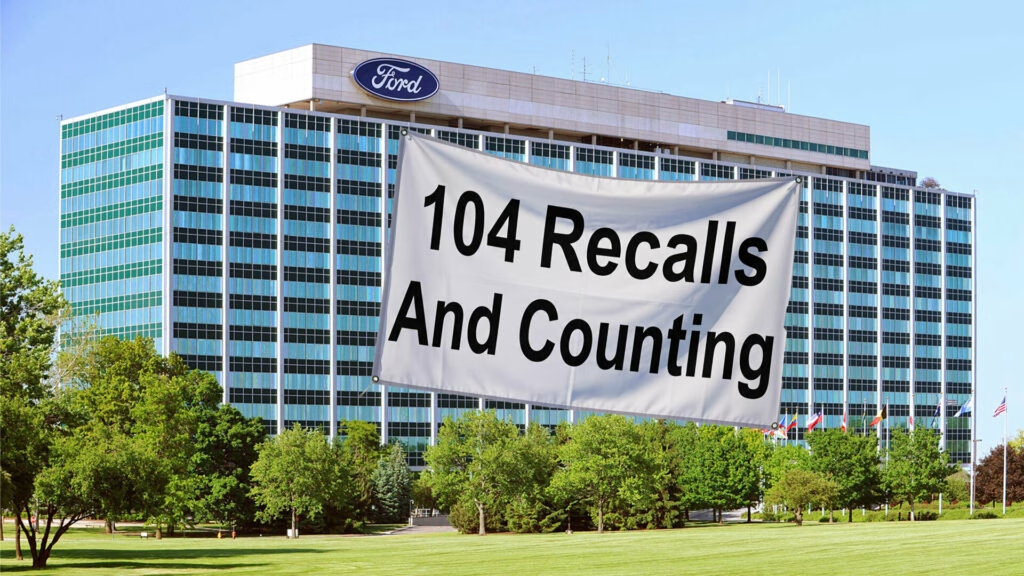Why Are Ford and Lincoln Facing So Many Recalls Right Now?
If you own a Ford or Lincoln, you’ve probably noticed the recall letters piling up. In less than nine months, Ford has issued a jaw-dropping 104 recalls—leaving even seasoned industry watchers shaking their heads. To put that in perspective, the next closest automaker, FCA, has only 21 recalls in the same period. When you tally up recalls from FCA, Volkswagen, GM, Mercedes, Honda, and Hyundai combined, you still fall short of Ford’s total by a whopping 27 recalls. That’s not just a lead—it’s a landslide.
So, what’s going on? The spike isn’t just a fluke. Industry analysts point to a mix of factors: increasingly complex vehicle electronics, aggressive production schedules, and, in some cases, earlier fixes that didn’t quite stick. Ford’s rapid rollout of new tech—think digital dashboards, advanced driver-assist systems, and LED lighting—means more opportunities for bugs to slip through. And when a fix doesn’t work the first time? You get a recall of a recall, which is exactly what’s happening with several recent campaigns.
Which Vehicles and Problems Are Affected This Time?
Let’s break down the latest batch. Six new recalls just dropped, covering tens of thousands of vehicles, from the ever-popular F-150 to Lincoln’s luxury Corsair and Nautilus crossovers. Here’s what’s on the list:
– 2022 Ford F-150: Over 22,000 trucks recalled because their parking lights may flicker when the headlights are on. Not exactly what you want when driving at night. Dealers will update the LED driver module software, and in some cases, swap out the LED control module entirely.
– 2024 Ford Mustang: A single car is being called back after a previous repair didn’t take. The culprit? The instrument cluster might not work at startup or while driving. The fix is a straightforward software update at the dealer.
– 2024-2025 Lincoln Nautilus: 102 crossovers are back in the shop after an earlier recall failed to resolve issues with the automatic window reversal system. If the window hits an obstacle—like a finger—it might not reverse as it should. Dealers will now install the correct door module software.
– 2020-2022 Lincoln Corsair: Nearly 42,000 SUVs are affected by water intrusion in the rearview camera connections, which can knock out the backup camera display. The solution: replace both the camera and its wiring harness.
Why Do Some Recalls Get Recalled Again?
It sounds almost comical, but recalls of recalls are a real headache for both automakers and drivers. Sometimes, the original fix doesn’t fully address the root cause, or a software patch introduces new bugs. According to the National Highway Traffic Safety Administration (NHTSA), about 15% of all recalls involve vehicles that have already been recalled for the same or related issues. That’s not just a Ford problem, but with the company’s current recall volume, it’s showing up more often.
A recent example: the Lincoln Nautilus window reversal system. The first recall aimed to fix the problem, but the software update didn’t work as intended. Now, Ford is going back to install a different version of the software, hoping to finally put the issue to bed.
How Do Ford’s Recalls Compare to Other Automakers?
Ford’s recall numbers are in a league of their own right now. According to data from the NHTSA, the average major automaker issues between 10 and 30 recalls per year. Ford has managed to surpass 100 in less than nine months. For context, Toyota and Honda—both known for reliability—typically hover in the low double digits annually.
What’s behind this disparity? Some experts suggest Ford’s aggressive push to modernize its lineup is partly to blame. New tech means new risks, and the company’s willingness to issue recalls quickly (rather than quietly fixing issues during regular service) may actually be a sign of transparency. Still, the sheer volume is hard to ignore.
What Should Owners Do If Their Car Is Recalled?
If you receive a recall notice, don’t ignore it. Even if the problem seems minor—like flickering lights or a glitchy camera—these issues can affect safety. Schedule a service appointment with your dealer as soon as possible. Repairs for recalls are always free, and most fixes are completed in a single visit.
For those worried about missing a recall, the NHTSA offers a handy online tool where you can enter your VIN and check for open recalls. It’s worth bookmarking, especially if you drive a Ford or Lincoln these days.
Is There a Bigger Lesson for the Auto Industry?
Ford’s recall surge is a wake-up call for the entire industry. As cars become rolling computers, software glitches and electronic hiccups are becoming as common as old-school mechanical failures. The challenge? Fixing these problems isn’t always as simple as swapping out a part. Sometimes, it takes multiple tries to get the software right.
The big takeaway? Car ownership isn’t about perfection—it’s about smarter adjustments. Start with one change this week, like checking your VIN for recalls, and you’ll likely spot the difference by month’s end.

